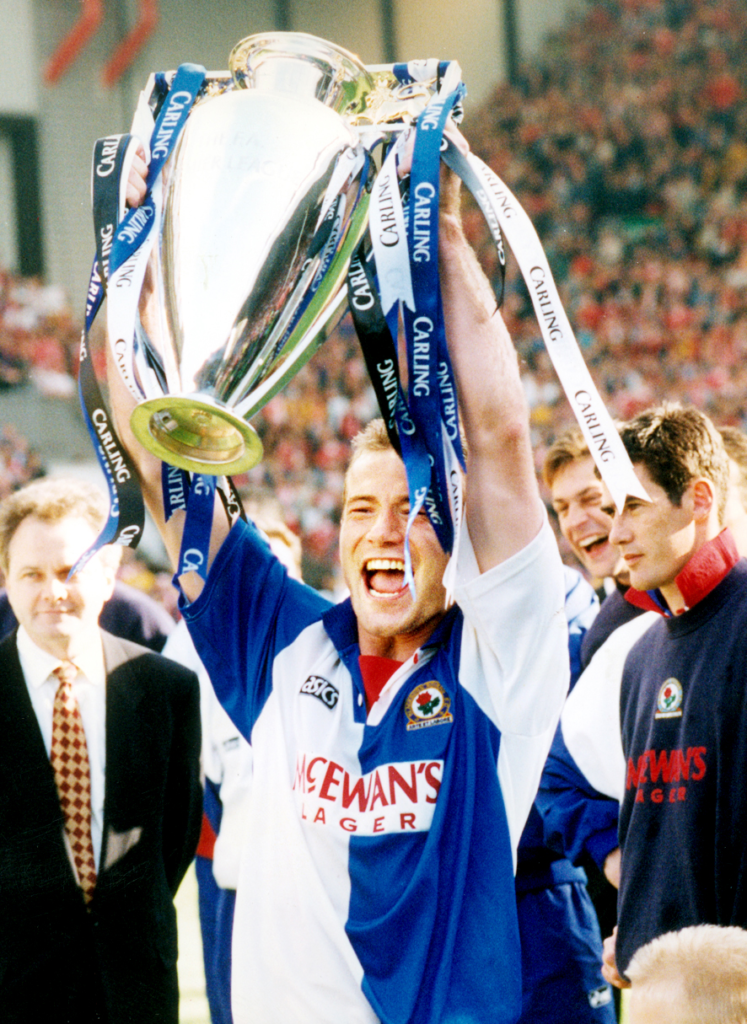If you are a fan of football and particularly one of the English Premier League (EPL), then you’ll immediately acknowledge the weight the names Gary Lineker and Alan Shearer carry and the almost mythical feats of greatness associated with them.
The mention of these names will also most certainly invoke memories of glory days past and call to attention the legendary careers of the two marksmen and the somewhat underappreciated contributions they’ve made in helping the Old English Division One grow into the English Premier League we know as the worldwide phenomenon it is today.

Who was the better striker: Gary Lineker or Alan Shearer? Alan Shearer is widely regarded to be the better of the two English Strikers. Both have won a single domestic trophy, no European Trophies and both boast a Semi Final appearance (Lineker World Cup 1986, Shearer Euro 1996) as their best international display (both winning the Golden Boot). It is Shearer’s remarkable club scoring form that puts him over the top. In total across his whole career Shearer scored 313 goals, while Lineker managed “just” 286. Shearer still holds the record for Premier League goals with 260.

What would naturally follow is a debate, and in most cases a heated one, on who between the two was the better striker, with each faction following their claim with a list of the accomplishments and accolades the strikers have accumulated in their illustrious tenures. If a truthful answer is to be given on who of the two was better, then it would be that it’s a stalemate as they both can stake claim because Shearer evidently scored more total Goals, with a record 260 goals in the Premier League alone, while Lineker had a slightly better goal-per-game ratio of 0.52 goals per game to Shearer’s 0.50.
For us to appreciate just how heavy this decision is, it is necessary that we carefully consider the Englishmen’s careers in their entirety. Just outrightly picking one of the two would be arriving at a verdict based on preference rather than facts.
Club Careers
Lineker began his football journey at Leicester City’s youth side, who he joined after finishing his education in 1977. The Englishman was thereafter promoted to their senior squad and turned pro in the club’s 1978-79 season. In seven seasons, Lineker scored 95 goals in 195 appearances for Leicester, who competed in both the First and Second Divisions during this period.
The Talisman subsequently moved to Everton in 1985 for £800,000, where he stayed for a season and scored 30 goals in 41 appearances for the English side. Following an impressive outing at the 1986 World Cup where he won the coveted Golden Boot, Lineker joined Spanish giants Barcelona for £2.8 million. The sharpshooter went on to score 42 goals in 103 appearances in three seasons with the La Liga side including an impressive 21 goals in 41 games during his maiden season.

Lineker then made his return to England in 1989, turning down offers from a number of suitors including Manchester United to sign for Tottenham Hotspur for £1.1 million. In his three seasons with Tottenham, Lineker scored 67 goals in 105 appearances and won the 1991 FA Cup after beating Nottingham Forest 2-1 in the final. The former Leicester City ace wound down his career with J1 side Nagoya Grampus Eight, who he joined in 1992 for £2 million and scored four goals in 18 appearances over two seasons with the Japanese club.
On the other hand, Shearer plied his trade exclusively in England. The striker began his career at Southampton’s youth side in 1986 and was promoted to their senior squad in 1988. “Smokey” would go on to score 23 goals in 118 appearances over five seasons with the Saints before leaving the club midway through their 1991-92 season to join the Blackburn Rovers in what was then a record £3.6 million move.
At Blackburn, Shearer’s star continued to shine despite battling an ACL injury which many football historians believe prompted the Englishman to change his style of play and possibly negatively affected his rising goalscoring form. Shearer however bounced back from the setback to score a mind-boggling 112 goals in 138 appearances over four seasons before joining Newcastle United in 1996 for a then record setting £15 million transfer fee.
Shearer would go on to spend 10 seasons with the Magpies in which he scored 148 goals in 303 appearances before finally hanging up his boots. Where club success is concerned, Shearer clearly has the edge over Lineker having scored more goals and bagged the Premier League title, which eluded Lineker his entire career, with Blackburn Rovers in their 1994-95 campaign.
International Careers
Lineker’s international career is something of legend having played for the Three Lions from 1984-1992, a period in which he was capped 80 times and scored 48 goals. His six goals in five games in the 1986 World Cup earned him the sought-after Golden Boot – a feat that was not repeated by an Englishman at a World Cup until Harry Kane clinched his in the 2018 World Cup.
The former Tottenham star still holds the English record for goals scored in the FIFA World Cup and boasts of one of the best goals-to-games ratios for his country. These fetes earned the maestro a nod from his fellow countrymen and is to date named in the England national team anthem “Three Lions”.
Shearer’s tenure with the England national team lasted from 1992 to 2000. Within this period, the former Blackburn Rovers star earned 63 caps and scored 30 goals. Surprisingly, Shearer was called up to replace Lineker, who had opted to retire from international action after the UEFA Euro 1996 competition.
The three-time EPL Golden Boot winner had relative success in his international career and arguably had his best outing in England’s UEFA Euro 2000 qualifier against Luxembourg, where the striker scored his one and only hat-trick for his country. Recognizing that his twilight years were fast approaching and that young up and coming players needed their chance, Shearer opted to retire from international football after the UEFA Euro 2000 competition.
If their international careers were to be considered, Lineker is clearly the more decorated of the two having scored more goals, gone further in the competitions in which he competed and won multiple personal awards on the international stage.
Accolades
Lineker’s long list of accolades include a trio of First Division top scorer awards, two FWA Footballer of the Year honors, a PFA Player’s Player of the Year nod, a FIFA World Cup Golden Boot, a FWA Tribute award, and Onze de Bronze and a FIFA Fair Play Award for having never been carded in his entire career.
Shearer is equally decorated with three Premier League Golden Boot awards, two PFA Player’s Player of the Year trophies, a FWA Player of the Year, a FWA Tribute Award, and a FIFA World Player of the Year Bronze Award.

Who Then Was Better?
This question is in all sincerity a hard nut to crack as both Lineker and Shearer have a claim on who between them was the better striker. Shearer fared better in his club career than Lineker while Lineker performed considerably better in his international career than Shearer.
Both their resumes are stacked with long lists of personal and club accolades that make them standout as the best strikers of their generations and among the best in the history of the top-tier EPL.
Perhaps the best approach would be this: rather than risk a disservice to one by claiming that the other was better, we should borrow a leaf from Lineker’s and Shearer’s post-career relationship where the two, who are celebrated football pundits for mainstream news outlets like BBC, often show each other mutual respect.
The two only lightly joke about the achievements they have over each other, namely the EPL trophy Shearer managed to win and Lineker didn’t and the FA Cup title that Lineker bagged and Shearer never managed to clinch.
